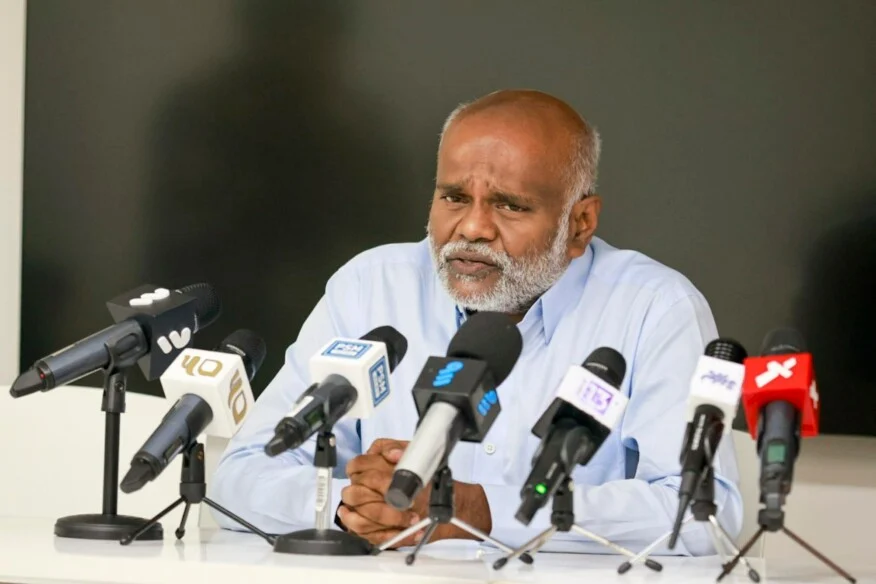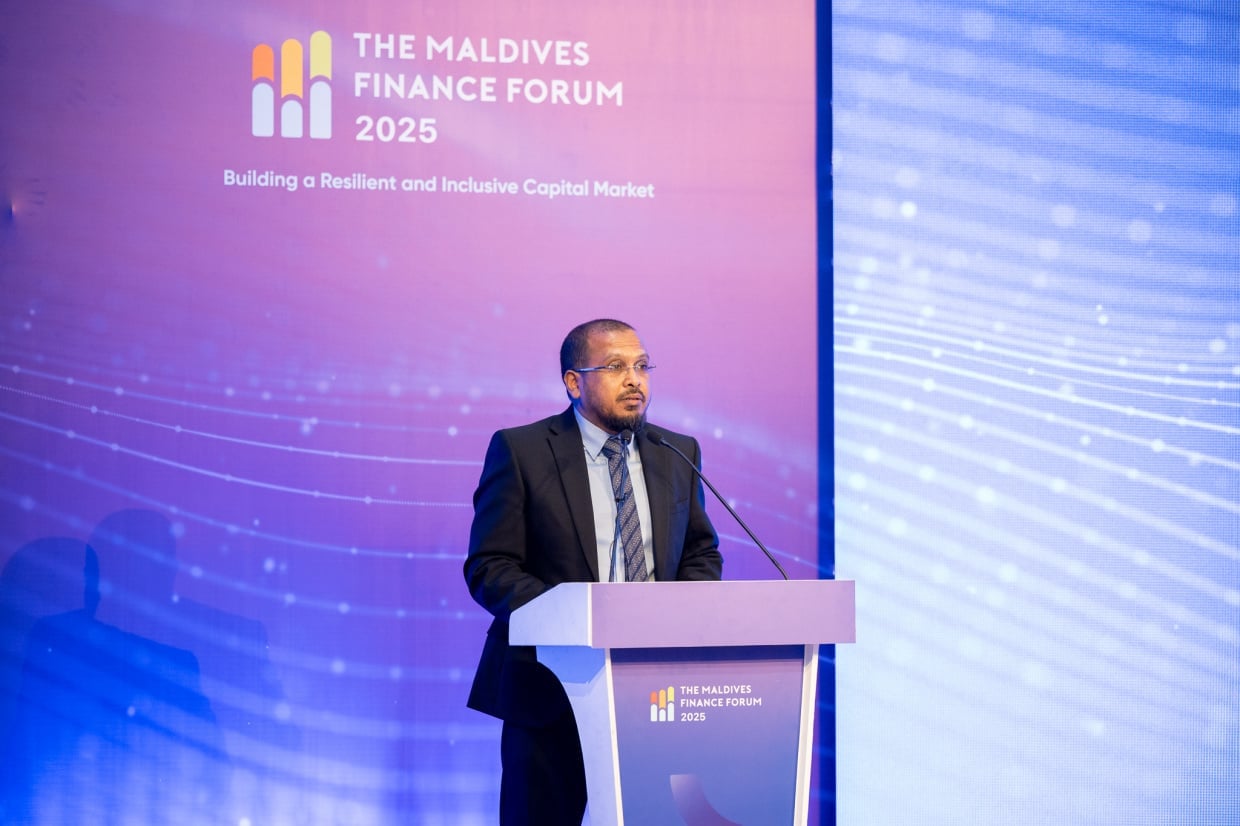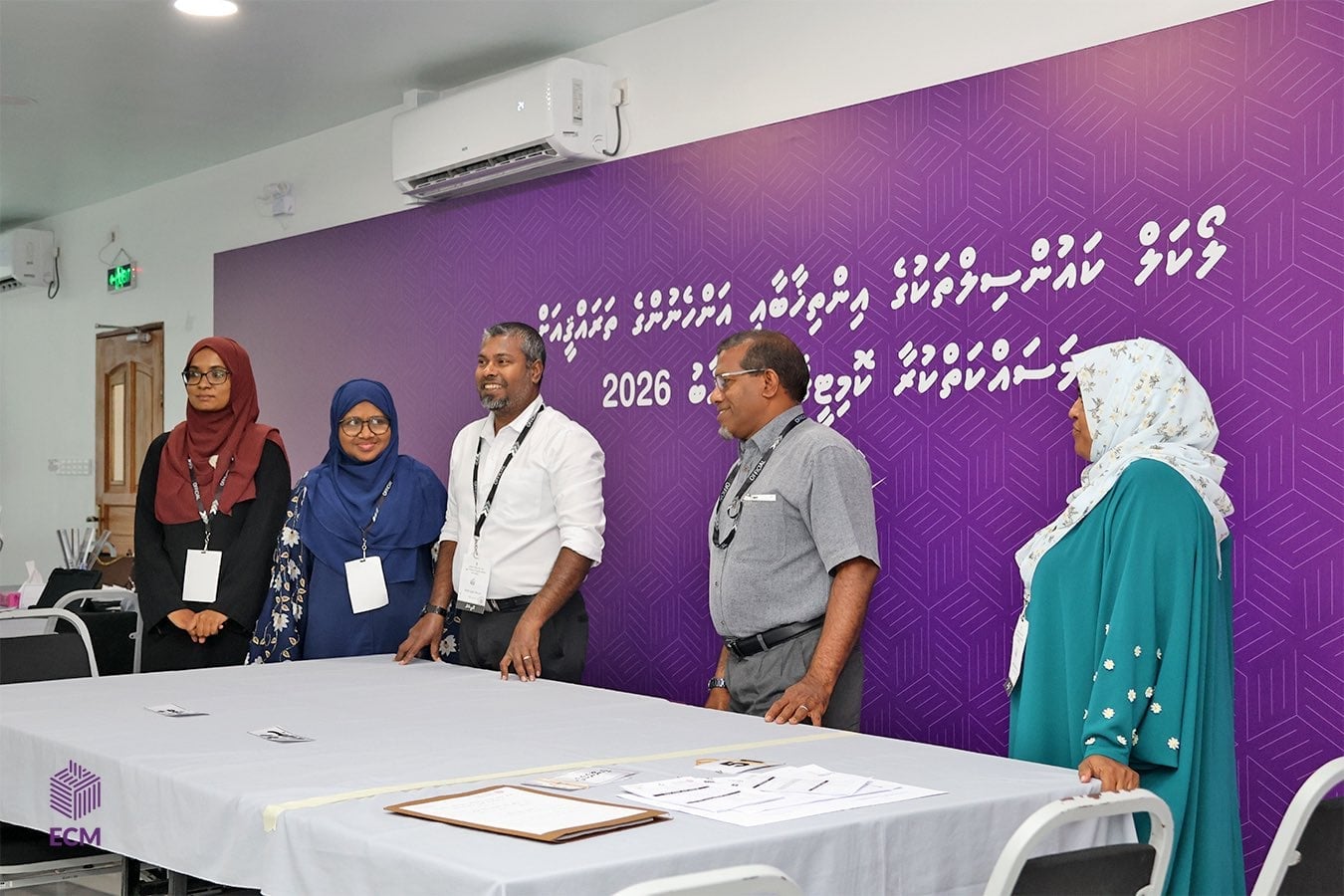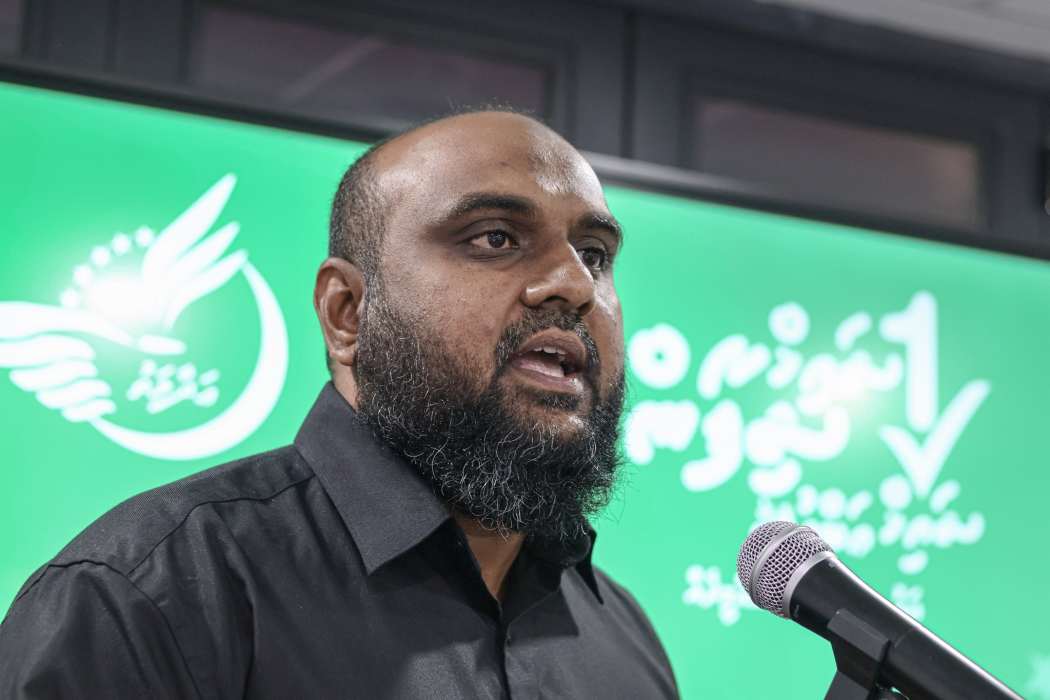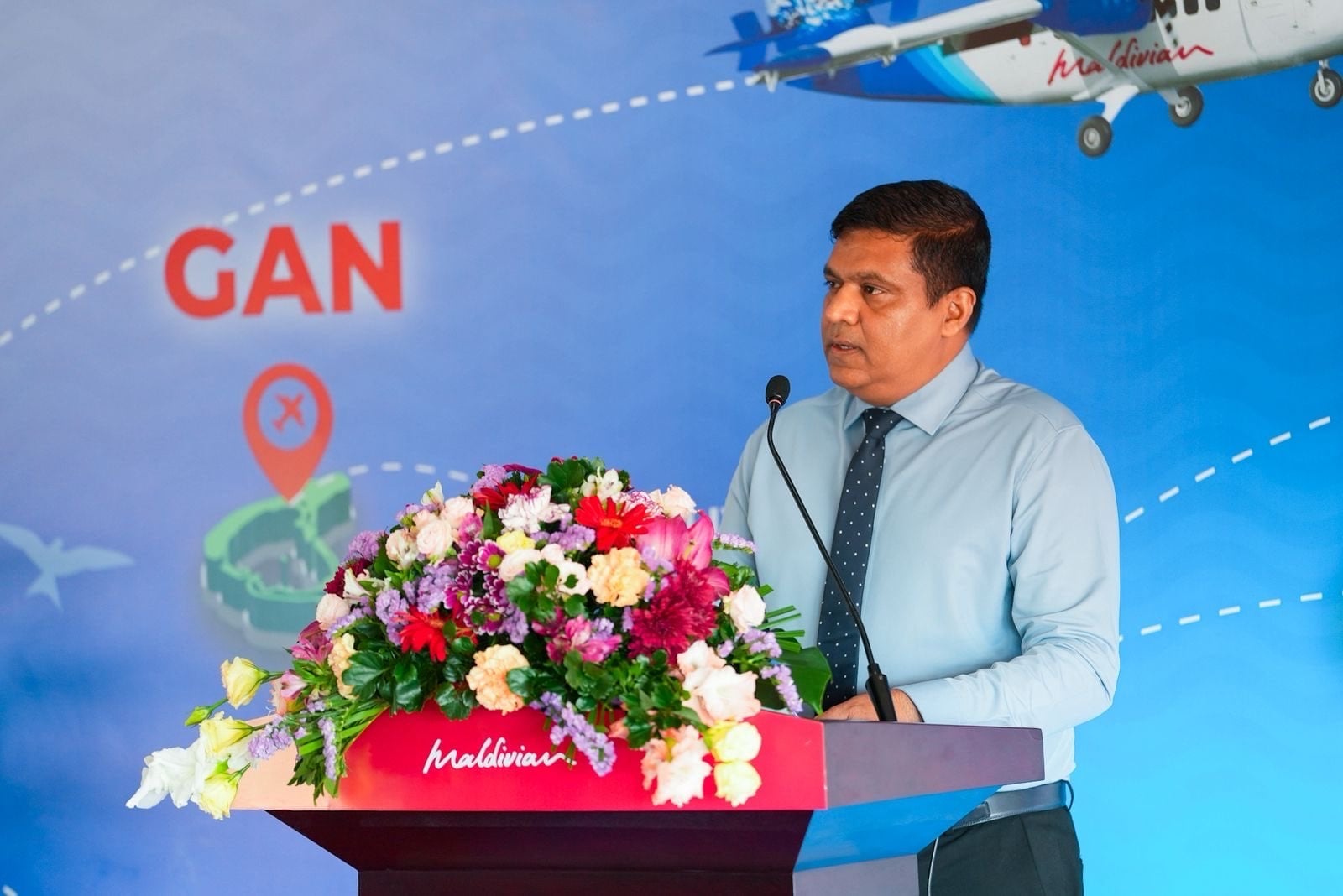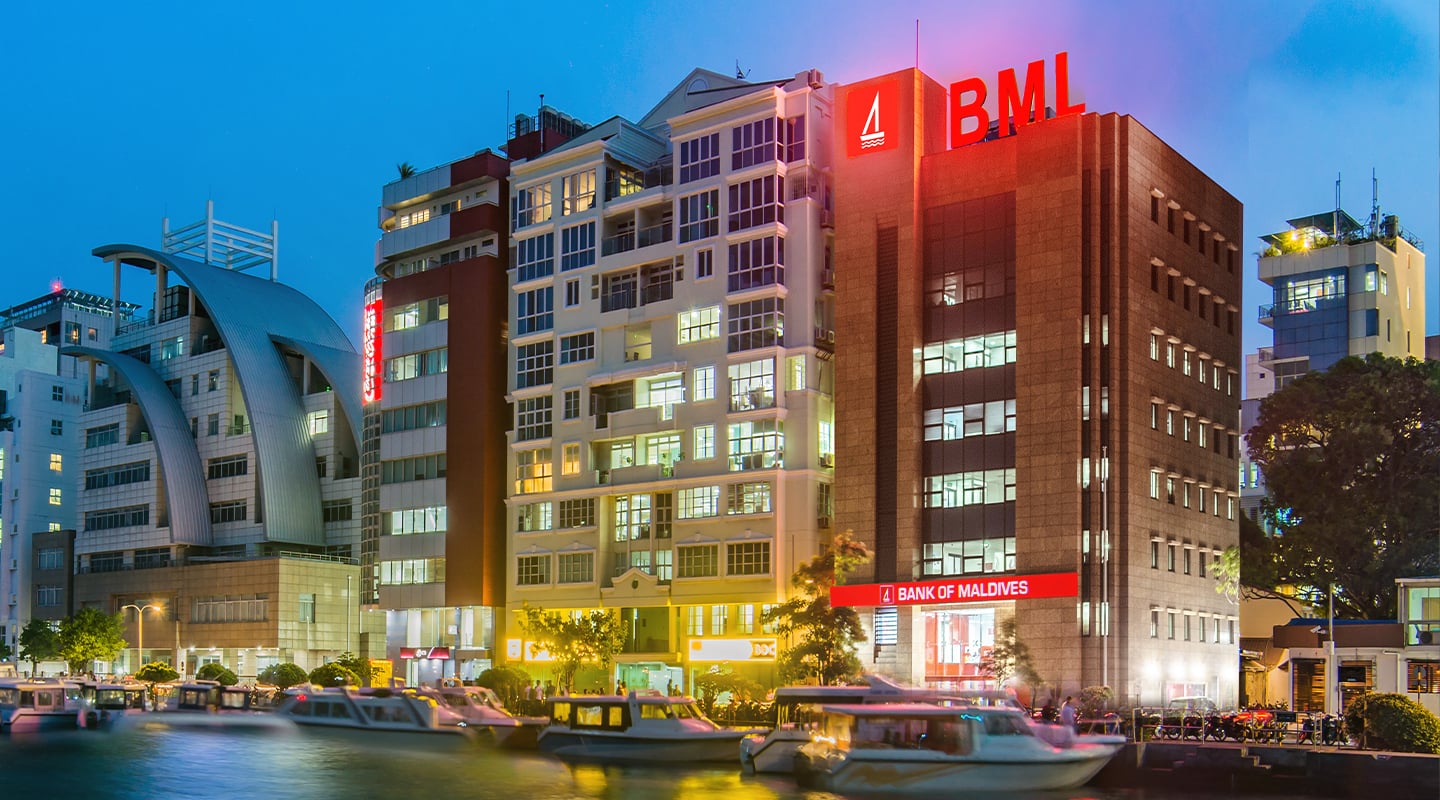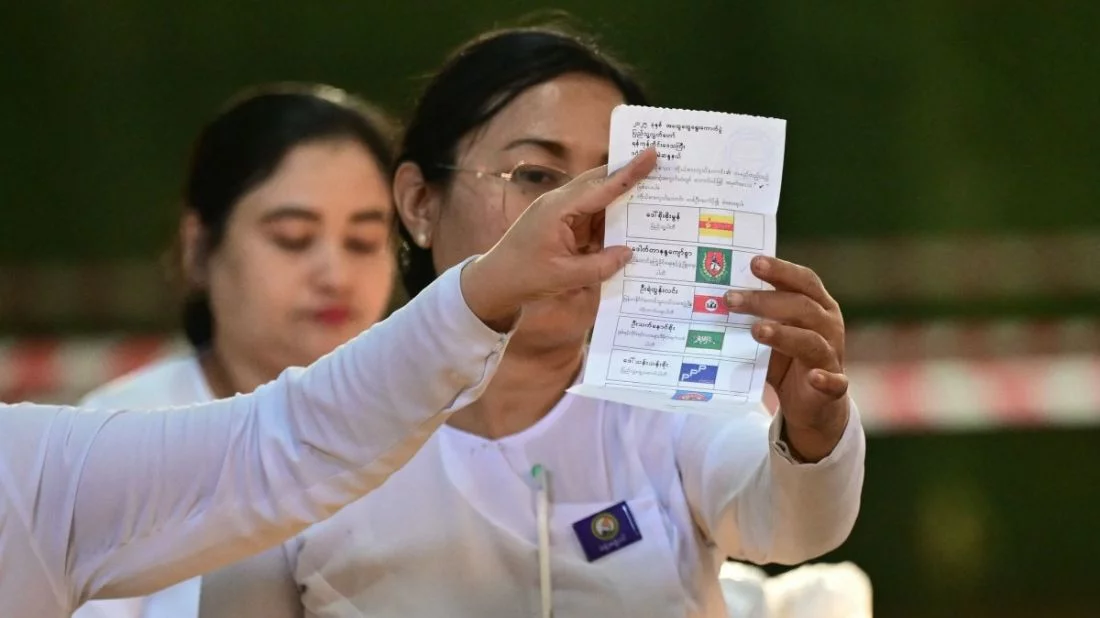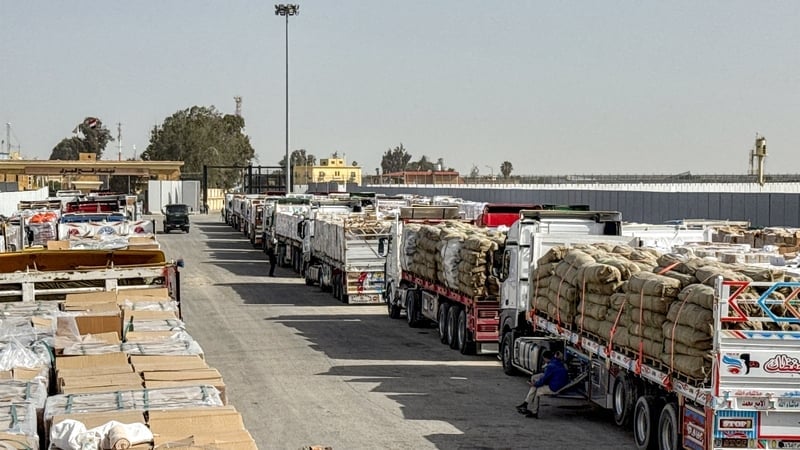Dr. Mohamed Munawwar, head of the Presidential Commission investigating the fall of 21-year-old Hawwa Yumnu Rasheed, has defended the commission's integrity following criticism linked to the disputed Chagos maritime case, asserting that past outcomes do not reflect the future success of the current commission.
Addressing the media at the commission’s first press conference, Munawwar responded to questions about his previous advocacy regarding the southern maritime boundary. He rejected suggestions that the commission’s work could be undermined by the Chagos case, stating that the real issue was not Chagos itself but rather how the matter was handled.
He explained that the dispute, brought before the International Tribunal for the Law of the Sea, involved overlapping claims between the Maldives’ southern economic zone and that of another country. He reiterated that his involvement in the matter had been limited to urging transparency and engagement with relevant state institutions, particularly during the administration of the former government.
According to Munawwar, the government at the time failed to adopt a strong position, even as the case neared its conclusion. As a result, the Maldives lost part of its southern maritime area when the tribunal delivered its ruling. He maintained that once the Maldives secures 200 nautical miles from the baseline, any remaining area can be preserved for another country.
Munawwar emphasized that recovering the lost maritime zone is a pledge made by President Dr. Mohamed Muizzu, who established a special committee led by former Attorney General Mohamed Anil within the Attorney General’s Office to address the issue.
He also revealed that the current Attorney General's office had tried to engage him formally by offering compensation for his expertise. Munawwar declined, saying he did not wish to be paid for a matter of national importance, and noted that there were unresolved legal concerns surrounding the agreement. Since then, there have been no further discussions with the government or the AG’s Office.
Munawwar said a group of concerned citizens had since sought his advice on the issue, and that he continues to advocate for the rights of the Maldivian state. Despite setbacks, he expressed no regret for his role in the Chagos matter and reaffirmed his commitment to defending the country’s maritime interests.
He also assured that the commission would investigate Yumnu’s case swiftly and without external influence, promising transparency and regular updates to the public through the newly launched information portal.
Addressing the media at the commission’s first press conference, Munawwar responded to questions about his previous advocacy regarding the southern maritime boundary. He rejected suggestions that the commission’s work could be undermined by the Chagos case, stating that the real issue was not Chagos itself but rather how the matter was handled.
He explained that the dispute, brought before the International Tribunal for the Law of the Sea, involved overlapping claims between the Maldives’ southern economic zone and that of another country. He reiterated that his involvement in the matter had been limited to urging transparency and engagement with relevant state institutions, particularly during the administration of the former government.
According to Munawwar, the government at the time failed to adopt a strong position, even as the case neared its conclusion. As a result, the Maldives lost part of its southern maritime area when the tribunal delivered its ruling. He maintained that once the Maldives secures 200 nautical miles from the baseline, any remaining area can be preserved for another country.
Munawwar emphasized that recovering the lost maritime zone is a pledge made by President Dr. Mohamed Muizzu, who established a special committee led by former Attorney General Mohamed Anil within the Attorney General’s Office to address the issue.
He also revealed that the current Attorney General's office had tried to engage him formally by offering compensation for his expertise. Munawwar declined, saying he did not wish to be paid for a matter of national importance, and noted that there were unresolved legal concerns surrounding the agreement. Since then, there have been no further discussions with the government or the AG’s Office.
Munawwar said a group of concerned citizens had since sought his advice on the issue, and that he continues to advocate for the rights of the Maldivian state. Despite setbacks, he expressed no regret for his role in the Chagos matter and reaffirmed his commitment to defending the country’s maritime interests.
He also assured that the commission would investigate Yumnu’s case swiftly and without external influence, promising transparency and regular updates to the public through the newly launched information portal.



